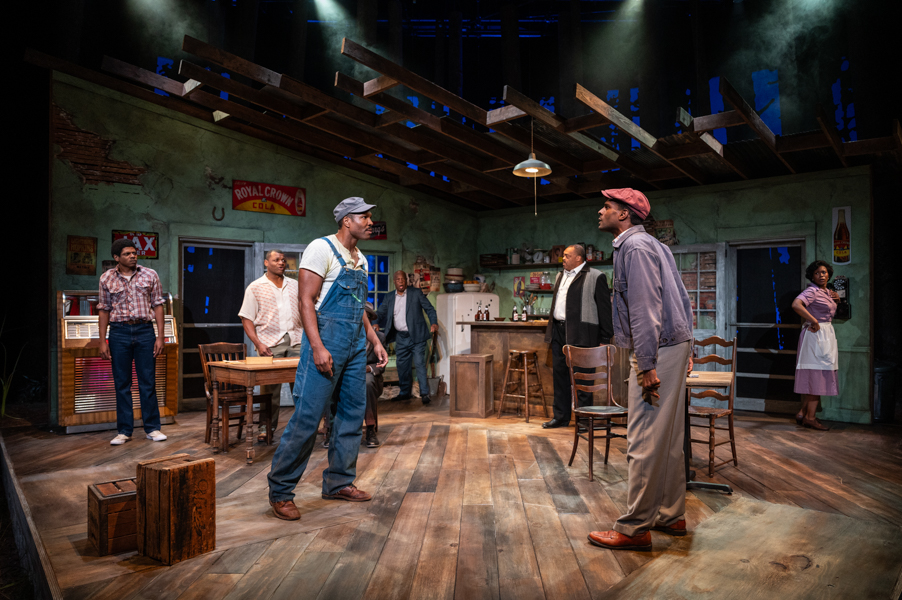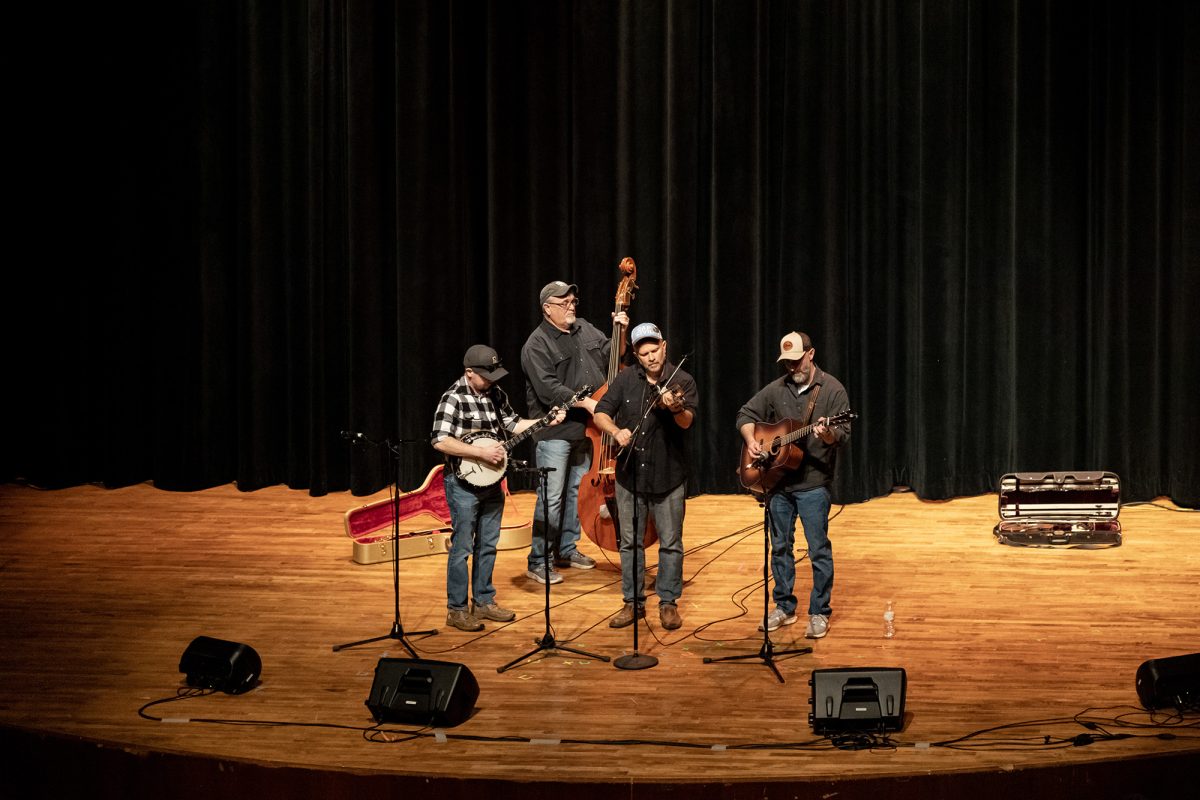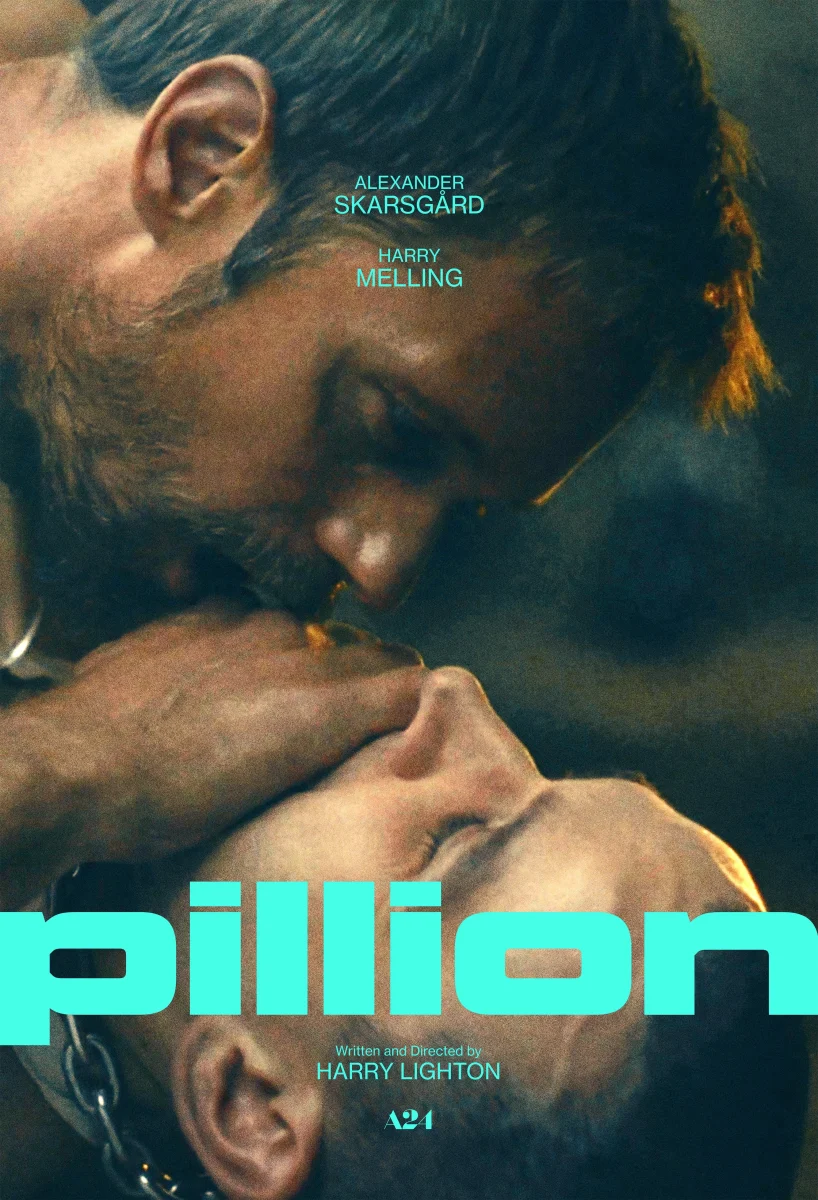It is 1955 in East Texas, and in the worn down, “colored only” Top o’ the Hill Café, anxiety simmers among East Texas Hot Links’ community of eight bantering, diverse characters. For most of the play this anxiety is like a shadow, ready to engulf the characters and pierce their facade of normalcy at any moment. In the otherwise relaxed and humorous bar atmosphere of the play, which opened September 6 at the Court Theatre, apprehension builds with a horror that is at once both engrossing and terrifying.
The plot is largely unadorned: for most of it, a slice of life of a hot, tinged evening in a café in East Texas meanders by. Things heat up when it is revealed that a too-good-to-be-true job opportunity for Delmus (a determined David Dowd) turns out to be a trap laid by the KKK. This format, slow then quickly hot, allows the actors to take center stage in the story by giving room for them to develop. What results is a beautiful collage of characters who span the gamut on everything from humor to attitude to life philosophy. Adolph (a good-natured Wille B.) is exceptionally wise. The audience hangs on to every word of the poetic monologues he delivers from his chair with the candor of a sage. Rather than possessing Adolph’s acquiescence, Delmus is filled with a fiery ambition for a better life, an ambition so strong that he’s willing to put himself in danger for it. This array of perspectives is not only refreshing and entertaining but also meaty, providing a view into the social fabric of a story of violence and community that, though fiction, has been lived through in many iterations.
Director Ron O.J. Parson skillfully navigates the anxiety of the play’s conflict without letting it dominate the story. East Texas Hot Links is just as much a play about the strength and beauty of a Black community as it is a stark reminder of a lived reality of fear and violence. This delicate balance is accomplished largely through humor and intimacy dotted with bleak reality checks. Roy (an animated Kelvin Roston Jr.) cracks jokes and is filled with energy but is plagued with a tangible restlessness. In a manner typical of the play, XL Dancer (a fiery Juwan Lockett) laughs as he twice mentions working for “the same old white man” since he was a baby. Yet this takes on a gutting significance when we’re confronted with what we already suspect: in a string of casual disclosures, XL reveals that his boss comes from a family of slave owners, is a member of the Ku Klux Klan, and controls the town they live in.
There is an elephant in the room in East Texas Hot Links: the characters are looking for escape, but it’s clear, as America’s history (and Checkov’s gun) reminds us, that they will be unlikely to find it. This is amplified by a worn-down set (designed by Jack Magaw) situated in the middle of a forest with nowhere to go, and the nail-biting sounds and lights of an arriving truck with KKK members (sound design Josh McCammon; lighting design Jason Lynch). This dramatic irony and its visual support create a kind of claustrophobia that makes the production as exciting as it is alarming. The end of the play becomes so tense that one fears to blink lest they miss what happens. That said, this thread of tension occasionally gets lost in the first half of the play, leaving one to wonder how exactly the 90-minute run time will be filled. If these dead moments are Parson’s strategy for capturing the stagnant atmosphere of the Top o’ the Hill Café, they come at the occasional cost of the audience’s attention.
However, the play never gets too tired as the characters respond diversely and dramatically to their environment. From the get-go, Roy is dying for something, anything, to provide reprieve. In fact, the play begins with a long silence that’s broken only with a poignant “Damn” by Roy. On the other hand, Buckshot (Geno Walker, who has a wonderful range that spans from dreamy to homicidal) begins calm and grounded but can only contain himself for so long before pressure causes something within him to burst. Finally, Delmus is desperate to leave and is willing to take any job he can get his hands on, which is gutting when we’re bleakly reminded by Adolph that wherever he goes, he’ll still be working for the same white man.
A wonderful element of this production is its ability to show pockets of beauty in the darkest moments, especially as the plot progresses and things become ugly. Charlesetta (a truly shining AnJi White), is a strong and intelligent glue in the play’s dynamics. The respect she commands and the community she’s cultivated is brilliantly palpable, adding glimmers of hope and inspiration to the production. This sense of community is perceptively reinforced by Boochie (a booming A.C. Smith) and Columbus (a wonderfully kind Alfred H. Wilson, who nails his soft-spoken demeanor), especially as their intimate investment and compassion in the other characters becomes manifest.
There is an incredible moment near the end of East Texas Hot Links where it feels like the scene should end, but it doesn’t. There is a long, agonizing silence that sweeps through the house of the Court Theatre and hangs in the air, transforming the audience members into what feels closer to witnesses than theatergoers. There is a raw feeling as the actors themselves become real people: traumatized, exhausted, and out of breath. Suddenly and without fanfare, the line between fiction and reality becomes indistinct, and, like the actors, we too are left gasping for air.









